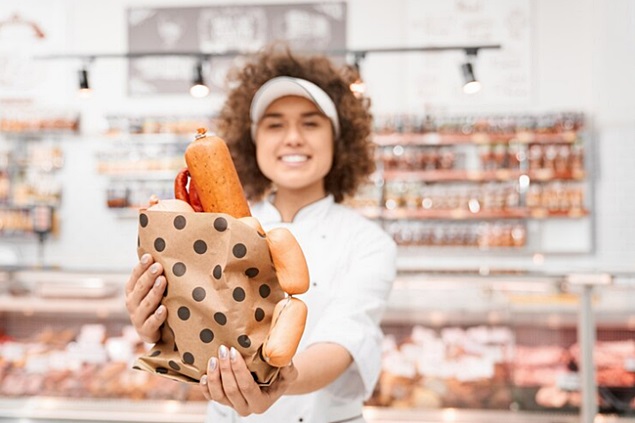1484

Retailers are adopting various measures to ensure competitiveness as well as to help consumers navigate through a period of ongoing economic uncertainty, as shown in a Daymon Retail Insights analysis.
Contraction
Since the beginning of 2021, inflation has risen rapidly, reaching its highest level in the past 32 years last year, with food price inflation being one of the major contributors.
In these circumstances, retailers are adopting various measures to ensure competitiveness and to help consumers navigate through a period of ongoing economic uncertainty.
"Shrinkflation" is one such measure, involving a reduction in the size or quantity of the product while maintaining the same price. After being used by major brands, this approach is also becoming increasingly common among retailers' own brand offerings.
A 2022 study by IGD indicated that snacks, breakfast cereals, bakery products, and refrigerated products are some of the categories where consumers are most sensitive to these practices, while non-food items are usually overlooked.
This indicates that retailers should proceed with caution, as the margin of adjustment they can implement without affecting perceived value has greatly diminished.
Inflation-proof Baskets
Retailers are also creating "inflation-proof baskets" to mitigate the impact of inflation. This strategy has been successfully implemented in France by retailers such as Carrefour and Intermarché.
Price Matching
Another approach, which has proven to be highly effective for British retailers such as Tesco and Sainsbury’s, is price matching with discounters, eliminating price as a reason for all consumers to shop elsewhere, according to Tesco CEO Ken Murphy.
According to a recent Mintel study, about 44% of Tesco shoppers and 42% of Sainsbury's shoppers say that the respective retailers' "Aldi Price Match" schemes have prevented them from switching to discounters.
Loyalty Programs
A traditional solution, retailers have increased their investments in loyalty programs, both to increase value and to provide a more engaged and personalized shopping experience.
A recent survey conducted by Daymon on LinkedIn highlighted the importance of exclusive promotions as part of a loyalty-based approach, with over a third (34%) of market players identifying "seeking discounts" as the key shift in consumer behavior they need to address in dealing with inflation.
Private Label vs. National Brands Comparison
When it comes to highlighting the value of private labels, comparisons with national brands are an effective vehicle, where retailers communicate the amount of money customers would save by choosing private label products over national brands.
Private Brand Strengthening
Of course, Private Brand has proven to be a powerful tool in promoting value beyond price, especially when its inherent accessibility is combined with trend-aligned innovation. As a result, retailers worldwide are strengthening their private label ranges and making highly relevant products accessible across all budget spectrums.
In South Africa, Shoprite's new private label, "Homegrown," which aligns with the rapidly growing trend of "locally sourced," is an example, while the Portuguese retailer Continente recently launched a range of breakfast and snack items for children under the Continente Equilibrio brand, to meet the growing demand from consumers for nutritionally balanced products, specially formulated for children.
Future Challenges
With 54% of market players identifying inflation as the most significant challenge for next year, according to a recent Daymon LinkedIn survey, it is anticipated that key trends established during the recession will continue to influence long-term business strategies in the future.
Therefore, it is essential for retailers and brands to continue helping consumers in economic recovery by employing strategies that can partially restore their reduced purchasing power. (Photo: Freepik)





